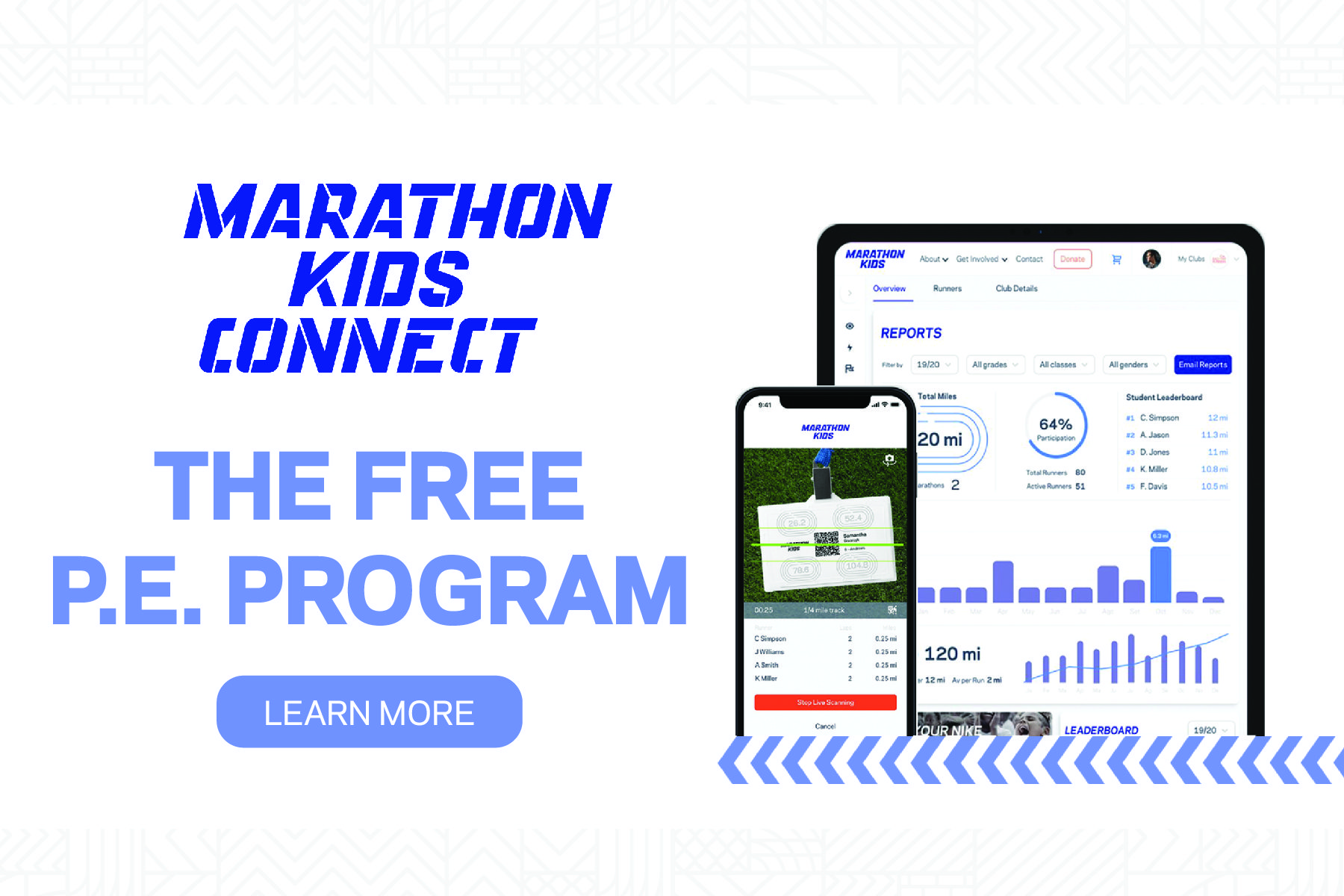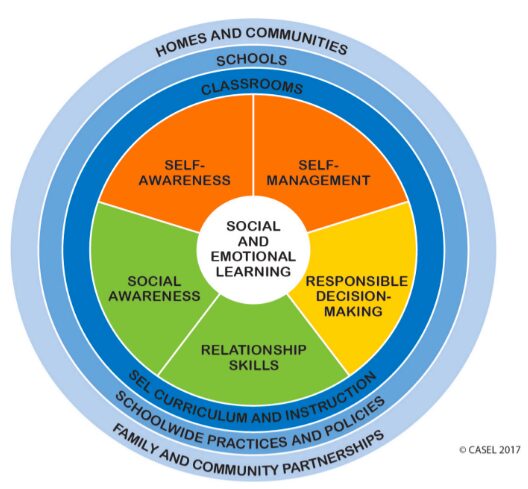Here at Marathon Kids, we know that active kids do better. We also know that kids who are able to listen, communicate, and problem-solve are better equipped to succeed in school and in life. These are all skills they need to navigate the world around them.
Using the pillars of the Marathon Kids program, many of our coaches are using their running clubs not only for physical activity, but also to prime their kids’ brains, to encourage them to build relationships, and to help their runners unlock the key concepts of social emotional learning.
Core Social Emotional Learning Competencies
The Collaborative for Academic, Social, and Emotional Learning, or CASEL, is on mission to help make evidence-based social emotional learning (SEL) an integral part of the school day, from Pre-K to high school. CASEL’s five competencies are embedded in SEL curriculum and help a child succeed in their personal and relationship skills. More importantly, these five competencies help educate hearts, inspire minds, and help students navigate the world more effectively. Schools and youth organizations across the nation are now increasingly implementing social emotional learning into a student’s day.
The five competencies are: Self-Awareness, Self-Management, Social Awareness, Relationship Skills, and Responsible Decision-Making.
What is Social Emotional Learning?
SEL is more than a program or a lesson. It’s a process through which children and adults learn how to:
✓ Understand and manage emotions
✓ Set and achieve positive goals
✓ Feel and show empathy for others
✓ Maintain positive relationships
✓ Make responsible decisions
It is about how teaching and learning happen, as well as what you teach and where you learn.
Through SEL curriculum, kids learn positive self-talk, problem-solving skills, and how to build relationships with others. They start to recognize that everyone is unique, that listening to understand can help resolve misunderstandings, and that people sometimes interpret information or experiences differently. And that’s okay!
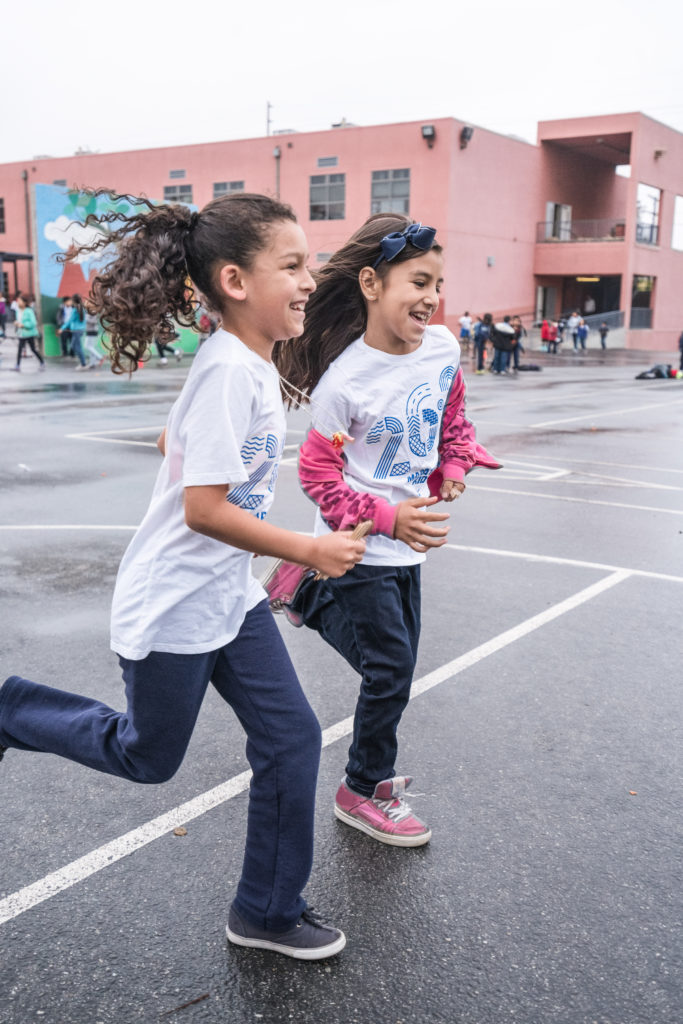
Learning Soft Skills
While technology can make our lives easier, it can also cause children to spend less time communicating face to face, to have difficulty expressing how they feel in appropriate ways, and to need guidance in navigating relationships with others.
Soft skills—which are needed to effectively communicate, problem-solve, collaborate, and organize—are becoming increasingly important for success later in life. Recruiters and employment experts have started reporting a “soft skills gap,” especially among young workers more accustomed to texting than talking. Some employers are expressing frustration that while they can teach employees a new skill, they can’t teach them how to communicate, listen, or get along with others.
Social emotional learning plays an integral key role in helping students achieve both academically and interpersonally. The world needs more critical thinkers, problem-solvers, and well-balanced, relationship-building humans to face new challenges and demands.
Marathon Kids + Social Emotional Health
Through running, we show kids they can achieve more than they ever thought possible. And, the success kids find in setting goals and tracking their progress at running club trickles down to other parts of their lives as well. When kids have higher self-confidence, they are more willing to break out of their shell, try new things, and persevere when things get tough.
Not only are Marathon Kids participants reaping the benefits of physical activity and building endurance, but they are also learning the importance of goal-setting, determination, and relationship-building.
Let’s take a look from a high-level perspective at how the Marathon Kids program connects with CASEL’s five competencies:
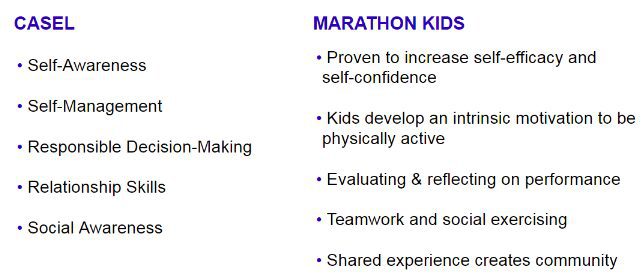
Through stories we’ve collected, we know our simple, fun, and effective running clubs create a space for so much more to happen than just conquering laps. Kids are self-evaluating and reflecting on their performance. Some kids who aren’t involved in sports feel like they are athletes—possibly for the first time—and that they are part of a team. Running club becomes a social outlet to create community and spark friendships with a diverse group of peers.
“It felt great to have my teammates cheer me through the spirit tunnel.”
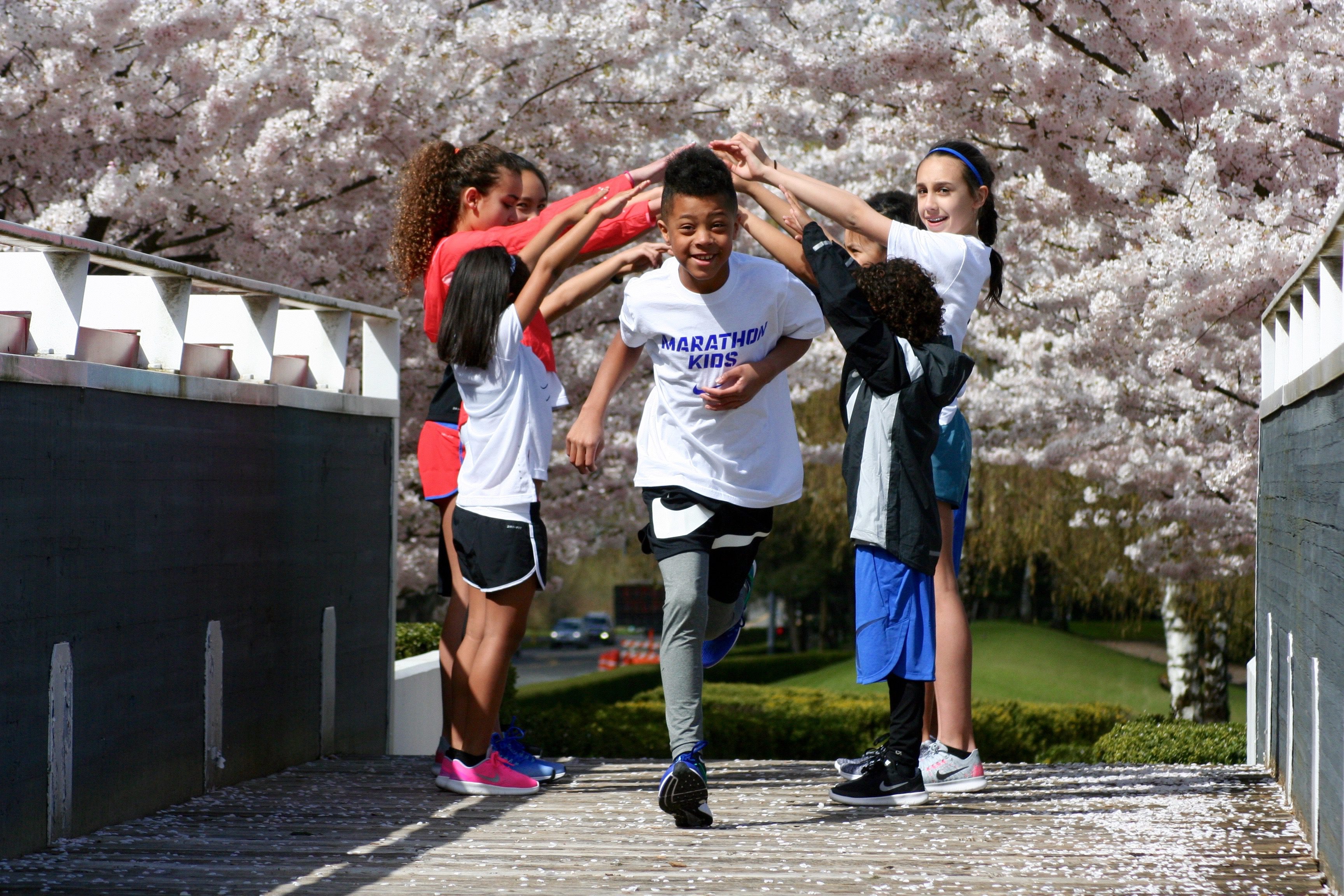
What’s next?
Whether you are a teacher, coach, parent, principal, administrator, or volunteer, we want to help you incorporate physical activity into your school’s schedule. There’s power in movement. Use it to ignite and regulate kids’ brains, build relationships, and create well-balanced kids who are ready to navigate the world around them. The Marathon Kids program can be integrated into SEL curriculum, brain breaks, and your school culture. Click here to learn how to build social emotional learning skills through physical activity by watching one of our virtual training videos.
“I believe Marathon Kids will help improve kids’ lives socially and emotionally, which will lead to their success in the classroom.”— Marathon Kids coach Rene Hernandez
For more information about our free program and training opportunities, including a social emotional learning module, please contact us at info@marathonkids.org.
ABOUT MARATHON KIDS
Marathon Kids is on a mission to get kids moving. The nonprofit organization offers free physical education programming through Marathon Kids Connect, a cloud-based PE and run club management platform that includes a mobile app for digital activity-tracking.
